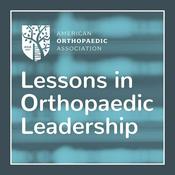What happens when a respected orthopaedic chair steps away from the big title to get back to the OR, residents, and real day-to-day impact? We sit down with Dr. Keith Kenter to unpack a rare leadership arc—building an academic culture in Kalamazoo, navigating post-COVID administrative sprawl, and ultimately returning to Missouri to reclaim core values: teaching, operating, and mentoring. It’s a candid look at ego, identity, and the quiet power of influence without authority.
Dr. Kenter shares how he elevated scholarly activity, promoted faculty, and designed a longitudinal musculoskeletal education program, then watched his role expand across multiple surgical services until the clinical work he loved slipped out of reach. Family, foresight, and timing opened a door at Mizzou, where strong culture and deep bench strength offered collaboration, patient-first focus, and the daily satisfaction of training the next generation.
If the story resonates, follow the show, share with a colleague, and leave a review with your biggest “leading up” takeaway. Your feedback helps more clinicians find conversations that move our profession forward.



